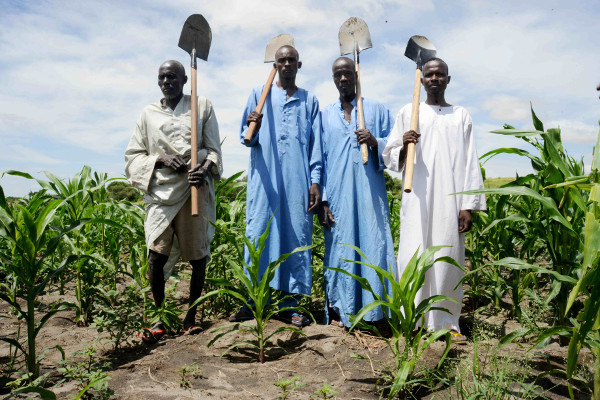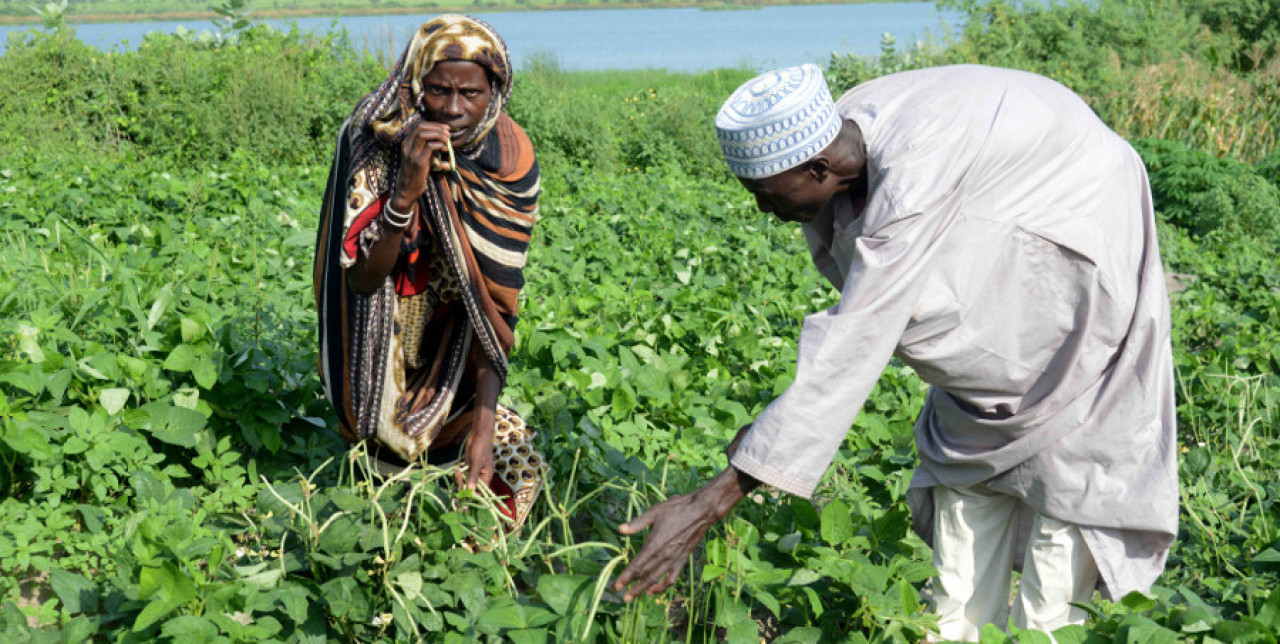06-04-2018 | di COOPI
Food security in Chad: activities and results
Since June 2017, in the Lake Chad Region, COOPI has been carrying out the “Integrated urgency programme aimed at improving food resilience and security of the more vulnerable populations,” financed by AICS (the Italian Agency for Development Cooperation). Food security is fundamental and is guaranteed when everybody has a continuous physical, social and economic access to sufficient, secure and nutritious food capable of satisfying food needs and preferences for an active and healthy life.
The aim of the project, which will end in April, was to provide direct support to the local population living in conditions of extreme vulnerability due to the impossibility to invest in agriculture and breeding because of the terrorist attacks of Boko Haram in the Region.
The greater difficulties, however, are faced by the refugees coming from Nigeria and Niger, as they have no access to water. Therefore, COOPI enabled both the local populations and the refugees to have access to water by fostering partnership agreements between the various farming groups and the persons in charge of the districts, that is landowners.
The activities carried out also allowed to strengthen the productive abilities of 40 farming groups through the distribution of tools and materials: hoes and rakes, as well as cereal, legume and vegetable sowing seeds. In addition, various training sessions were organized on the technical aspects of plant and vegetable cultivations and on trade.

One of the major issues for the farming groups was the availability of water, both for irrigation and as drinking water. It is a common practice for farmers to realize perforations that are not very deep (6-7 metres). Consequently, the water is very rich in salts and not fit for agriculture. In order to solve the problem, 40 perforations were realized with a depth of at least 18 metres in the 17 villages identified on the basis of the project’s goals.
With reference to nutrition, in August 2017 COOPI carried out a survey on the recipient families’ food consumption. This allowed to observe that 70% of the recipients do not eat vegetables and fruit regularly, with possible harmful consequences on health: deterioration of the gastrointestinal tract, anaemia, haemorrhages, weakness, irregular heartbeats, low immune system. Therefore, the project provided for training sessions addressed to pregnant and breastfeeding women on matters concerning good nutritional practices, together with practical sessions on how to prepare food properly. Since, in general, women are those in charge of this role within families, it is easy to understand how these activities are of fundamental relevance.
Lastly, besides relaunching agricultural cultivations, COOPI promoted the relaunching of goat breeding. Between September and October 2017, 1,170 vaccinated goats were distributed to 390 women, together with the necessary dietary integrators, organizing at the same time two training sessions on breeding. In March 2018, the veterinaries of the breeding delegation, with the support of COOPI and of the local NGO ALMP, trained 9 breeding auxiliaries in charge of assisting both the recipients of the goats and the indirect recipients of 17 villages in conditions of vulnerability. Lastly, to avoid the onset of infectious diseases, such as anthrax in small ruminants, 4,000 goats belonging to the indirect recipients were vaccinated.




 Chad
Chad